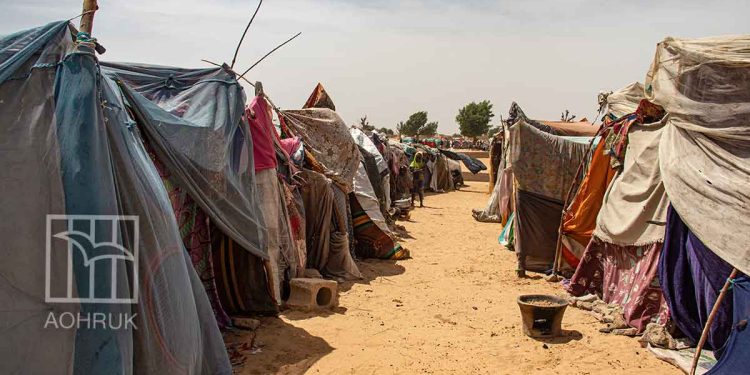Sudan is currently experiencing one of the gravest humanitarian crises in the world, as the ongoing conflict between the Sudanese army and the Rapid Support Forces (RSF) enters its second year. The war has wrought massive destruction and immeasurable suffering across the country.
With no political solution in sight, humanitarian needs have reached unprecedented levels, while global aid continues to shrink, leaving the crisis alarmingly underfunded and neglected by the international community.
Millions of Sudanese civilians are facing the dire consequences of this war, including hunger, displacement, and insecurity. Testimonies and on-the-ground reports confirm widespread violations of human rights, such as extrajudicial killings, sexual violence, and attacks on civilian and medical infrastructure. People are also being denied access to essential humanitarian assistance.
Amy Pope, Director General of the International Organization for Migration (IOM), described the situation as “enormous in scale” and raised alarms over the escalating violence and humanitarian needs. Speaking from Khartoum during a five-day visit, Pope called attention to the worsening crisis and the declining international response.
She noted that over 90,000 people fled El Fasher in the past two weeks alone, while another 50,000 were displaced from Kordofan due to intensified fighting. Many displaced individuals reported horrific experiences, including sexual violence, gunfire targeting civilians, and seeing dead bodies along the roads.
Pope stressed the urgent need to deliver vital services to the most vulnerable, particularly women and children, and highlighted the importance of a political and peaceful resolution to end the conflict. Despite some efforts to reach affected regions, such as the town of Tawila in North Darfur, humanitarian access remains severely limited.
She also called for the establishment of safe humanitarian corridors and an immediate ceasefire to ensure aid can reach those in need. Current aid capacities, she warned, fall far short of addressing the immense scale of suffering.
Recent estimates suggest that more than 13 million people have been displaced within Sudan, marking one of the largest displacements in recent history. At the same time, millions of families face famine, lacking access to shelter, food, and medical care.
Without decisive international intervention, the continuation of the conflict is embedding a state of collective punishment and territorial fragmentation. The absence of global political will threatens the complete collapse of the humanitarian framework in Sudan.
As warring factions trade blame, it is the civilians who pay the ultimate price. Sudan today stands on the brink of total collapse, and its forgotten victims are still waiting for meaningful international commitment that goes beyond empty condemnations, prioritising human life above all else.


























